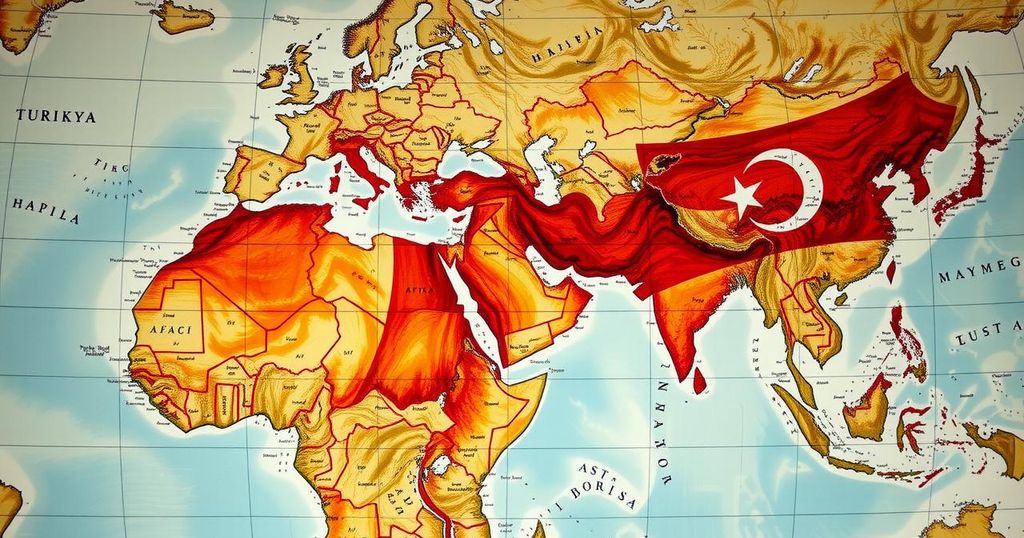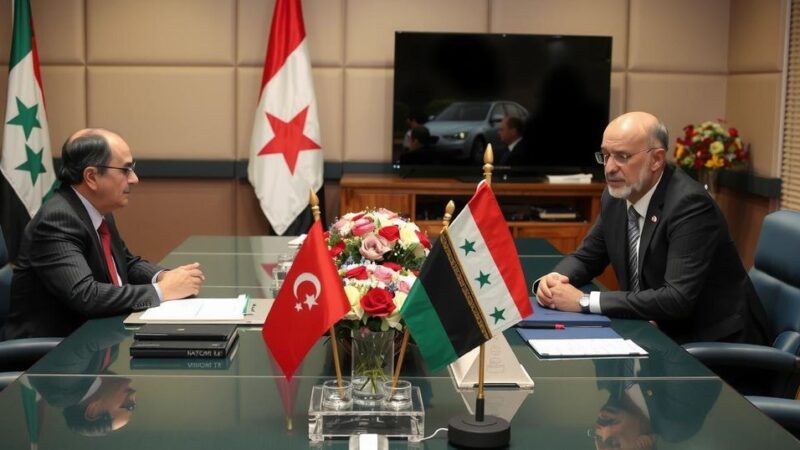The Ankara Declaration marks a diplomatic breakthrough for Türkiye, helping to ease tensions between Ethiopia and Somalia amidst regional instability. By addressing the status of Ethiopian troops in Somalia and Somaliland’s bid for international recognition, Türkiye aims to solidify its influence in the Horn of Africa. This agreement represents both a strategic victory for Türkiye and a potential pathway toward regional stability.
The recent Ankara Declaration, announced on December 11, represents a significant diplomatic win for Türkiye amid the tensions surrounding the Ethiopia-Somaliland dispute. This agreement, forged between Ethiopia and Somalia, aims to mitigate fears of proxy conflicts in a region already fraught with instability. As Türkiye navigates these complexities, the deal addresses key issues: the status of Ethiopian troops in Somalia and Somaliland’s aspiration for international recognition. By playing a role in this diplomatic resolution, Türkiye seeks to amplify its influence in the Horn of Africa, a region of growing geopolitical importance.
The Ethiopia-Somaliland controversy initially emerged from Ethiopia’s January 2024 memorandum recognizing Somaliland, promising diplomatic acknowledgment in exchange for access to key trade routes. This act, however, threatened Somalia’s claim over Somaliland. The UAE’s $300 million investment in the Berbera port only further complicated matters, as it solidified Somaliland’s position while offering Ethiopia a strategic corridor to the Red Sea. Subsequently, Somalia invalidated the agreement with threats of military action, igniting tensions and a potential regional crisis.
In October, Egypt capitalized on the situation by forming an anti-Ethiopia alliance with Somalia and Eritrea. As disputes over the Grand Ethiopian Renaissance Dam heightened, fears of a broader conflict loomed. The stakes were raised with speculations that Donald Trump’s administration may formally recognize Somaliland, prompting concerns of a domino effect on international support for the breakaway region. In this climate of escalating tensions, China intervened, reaffirming its support for Somalia’s sovereignty, which indirectly positions India as a potential player in countering Chinese influence in the region.
Despite these tensions, the Ankara Declaration appears to have fostered a newfound political dialogue. The agreement has effectively eased Ethiopia’s military presence in Somalia while facilitating smoother negotiations regarding port access. Moreover, under the auspices of the African Union, Ethiopia’s involvement in a new peacekeeping mission enhances its standing and contributions to regional security efforts.
However, Ethiopia’s renewed ties with Somalia raise critical questions about its commitments to Somaliland, heightening the already complex dynamics. The shifting allegiances within the Horn of Africa may challenge Ethiopia’s strategic interests. While the Biden administration has endorsed the Türkiye-mediated deal, the future of relations in this volatile region remains uncertain, particularly if the political landscape shifts with a change in US leadership.
The geopolitical context surrounding the Ankara Declaration is rooted in a series of contentious diplomatic maneuvers involving Ethiopia, Somalia, and Somaliland. Ethiopia’s engagement with Somaliland threatened Somalia’s territorial integrity, and the ensuing disputes attracted regional powers, such as Egypt and the UAE, into the fray. The ongoing instability reflects historical grievances and the interests of external players, prompting a complex web of alliances and opposition within the Horn of Africa. Türkiye’s strategic involvement signifies its ambition to become a key diplomatic actor in the region, utilizing its relationships to foster stability amidst growing tensions.
The Ankara Declaration represents a crucial step toward stabilizing a region rife with conflict and diplomatic disputes. By facilitating dialogue between Ethiopia and Somalia, Türkiye asserts its influence in the Horn of Africa while addressing pressing territorial concerns. The long-term efficacy of this agreement hinges on managing the competing interests of regional players like Somaliland and the economic aspirations tied to strategic maritime access. As the situation evolves, Türkiye’s role may continue to be vital in balancing these interests and fostering peace.
Original Source: www.orfonline.org







